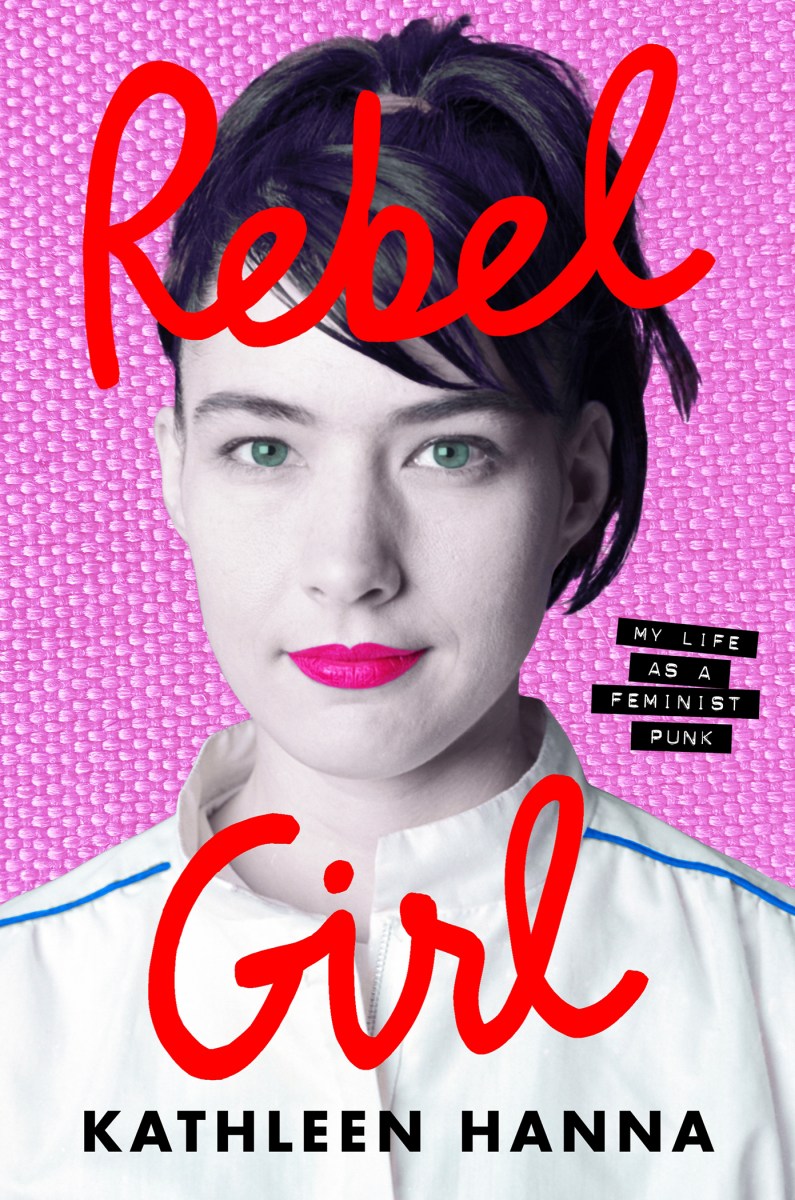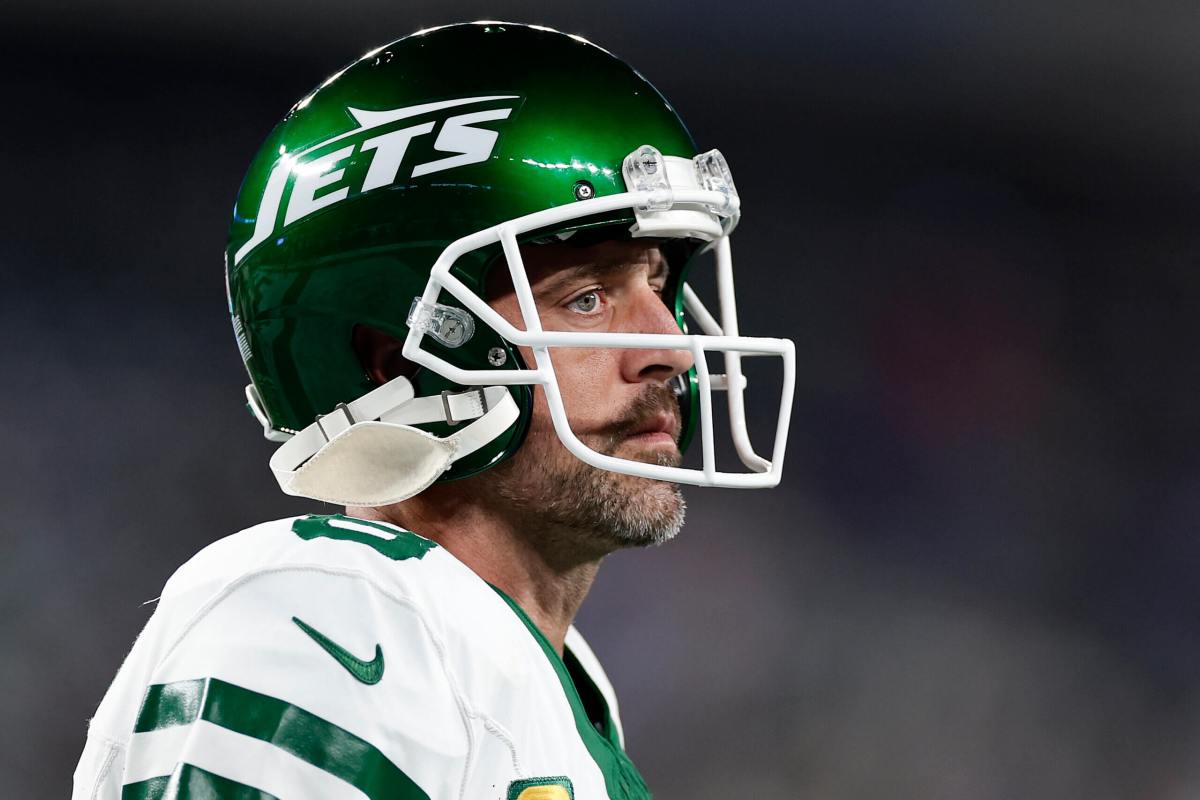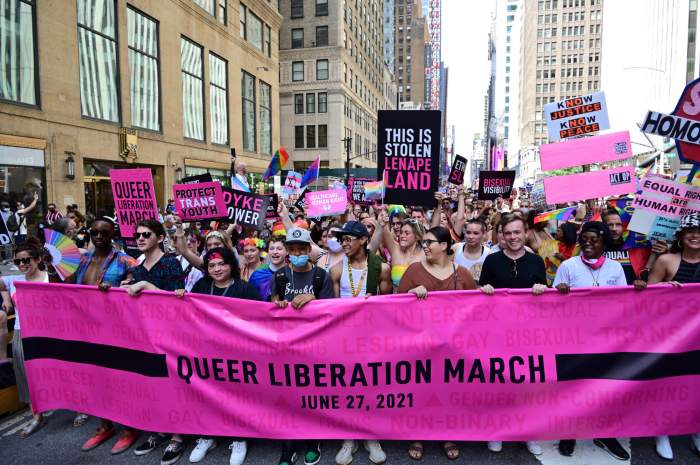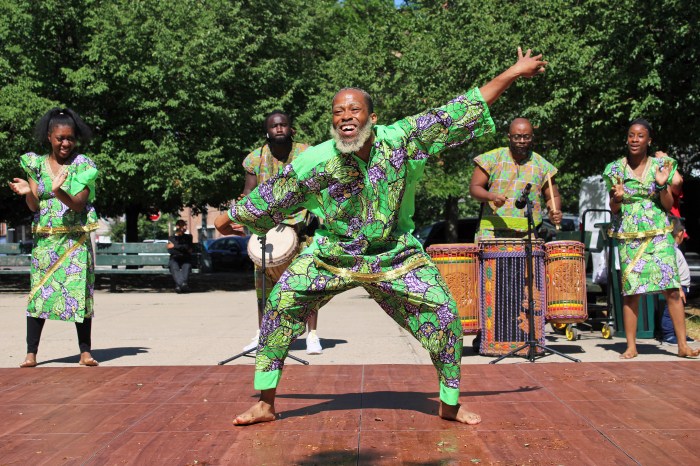Few artists have a neat origin story, but Kathleen Hanna, the feminist punk pioneer and celebrated frontwoman whose rallying cry of “girls to the front” inspired generations, may have a pretty convincing one.
While in college in the late ’80s, Hanna signed up for a writers’ workshop led by her hero, the postmodern novelist Kathy Acker. The author asked Hanna why she wanted to write. Hanna responded, “Because no one has listened to me my whole life and I really want to be heard.”
Acker’s feedback? “You should start a band.”
“Who gets gifted this? Sometimes I’m like, is life a stimulation and am I in a weird video game?,” Hanna jokes over the phone from her home in Pasadena, California. “I kind of always knew I was going to write this, especially because weird s—- kept happening to me, and the universe kept giving me stories with a beginning, middle and end.”
In “Rebel Girl: My Life as a Feminist Punk,” Hanna — known for her bands Bikini Kill, Le Tigre and the Julie Ruin, whose songs chastised abusers and celebrated girls, and as a force of the riot grrrlmovement, which brought third-wave feminism to an underground generation and was later commodified into girl-power marketing — accesses new levels of candor.
Out Tuesday, the bulk of the book concerns “’90s Kathleen,” as she describes it.
“At some point I was like, ‘I need to write all this down so I can move on,'” she says.
Across the memoir, Hanna writes with the same spirit of her bands, but without the exorcism-like delivery of her music, it can weigh heavy on the soul. There are moments of male violence and creative triumph. She details a childhood plagued by an alcoholic father that placed her an “the incest continuum,” as she’d learn while volunteering at a domestic violence shelter, and a mother who struggled but supported her creative ambitions — an uncomfortable and riveting inside look at an artist who, for many music fans, is viewed at a super-heroic distance.
“I’ve always kind of hated the ‘you’re a badass woman’ thing,” she says.
“I’m a dirty napkin as much as I am a rebel girl, people!” she laughs. In conversation as in her book, Hanna moves effortlessly from wicked humor to disturbing truth-telling.
“It’s a very strange sensation to have the public viewpoint be, ‘You’re this, you know, badass woman on stage, superhero, feminist,’ and one of your best friends f——— raped you. And you don’t tell anybody. And you’re still getting up on stage, you go on tour literally next day, and you play all these shows, and for years you don’t even tell your own band who knows this person.”
“Rebel Girl” was initially 600 pages long, nearly double what it is now. Gone are stories that don’t work on the page — and other accounts of abuse, including another rape and kidnapping.
“It was too much,” she says. “But I still left a lot of it in, and the reason was: Millions of people have too much.”
While writing the book, Hanna was diagnosed with complex post-traumatic stress syndrome and entered therapy for trauma.
“I’ve had moments of a kind of terror flash through me and they have to do with those things of, like, not being believed or someone coming after me who’s mentioned,” she says.
But if they didn’t believe her? “I’d be a pretty good writer if I could make this s—- up.”
Elsewhere, there are stories that fans of Hanna will know well, finally presented in her own words: Like how she gave Kurt Cobain the title “Smells like Teen Spirit,” which would become Nirvana’s biggest hit, or how the name “Bikini Kill” came from indie musician Lois Maffeo — a reference to the swimsuit design named after Bikini Atoll, where the U.S. government tested 23 nuclear weapons after Hiroshima and Nagasaki, and the images of Rita Hayworth that were taped to the side of the weapons, eventually dubbing her a “bombshell.”
Or the time Courtney Love punched her in the face at Lollapalooza in 1995. “People don’t see musicians, sometimes, as human. And so, they’re like, ’Oh, hahaha, that’s like two cartoons fighting,'” she says. “No, it was one woman walking up and physically assaulting another for no reason.”
And there are other anecdotes she works to reclaim and course-correct: She’s open about a lack of diversity in early riot grrrl meetings; she grapples with a tension between her public perception and personal pain.
In the latter sections of the book, Hanna details her long-time, life-threatening battle with Lyme Disease and other previously private revelations: heart-warming descriptions of her marriage to Beastie Boys ‘ Adam Horovitz, a miscarriage, the adoption of her son, Julius, and the fact that she and Bikini Kill’s Tobi Vail also wonder, like their fans do, what role their band and the riot grrrl movement might’ve played in modern identity politics — not as progenitors, but influencers.
“When we see a ‘girl power’ shirt at Target, we’re like, ‘What do we have to do with that?’” she muses that there is a line between what is progressive and what is punitive, and it is often obscured.
Despite those complications, the memoir ends with Hanna’s bands Bikini Kill and Le Tigre reuniting, and glorious, joyous depictions of motherhood — of her son, and her mother, and her friend’s children — and, in some ways, the next era of feminist punks she inspired, like the teenage band the Linda Lindas.
“She’s not afraid to speak the truth,” says Eloise Wong of the Linda Lindas. “I’m really lucky to have had access to her music from a young age, you know? So, I had these feminist ideas growing up.”
Wong says the reason many of the ideas Hanna’s work has espoused continue to connect with young people is that “sadly, a lot of the things that she talks about are still relevant today.”
She pauses.
“The idea of amplifying your own voice and making yourself heard if no one’s going to listen is just, like, so cool, you know?”
























